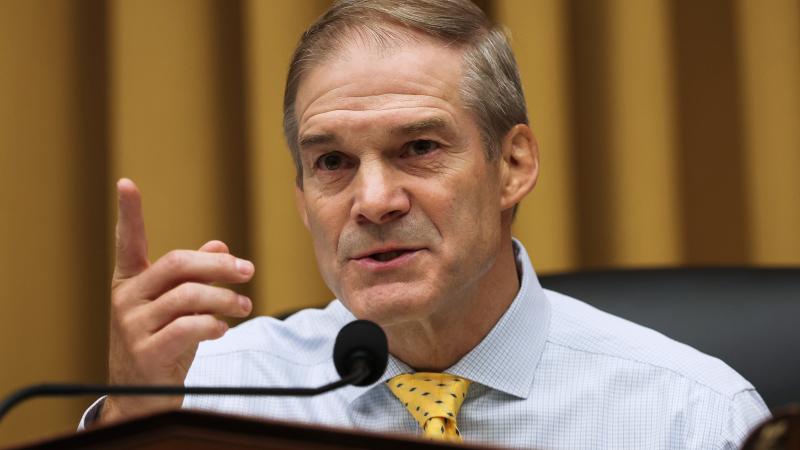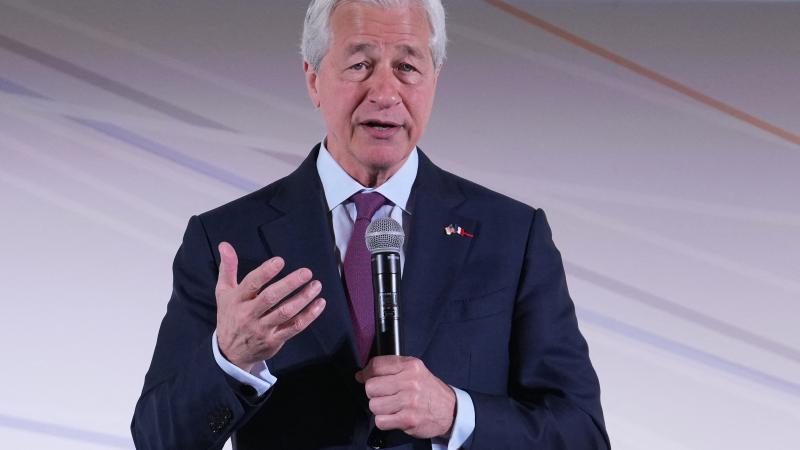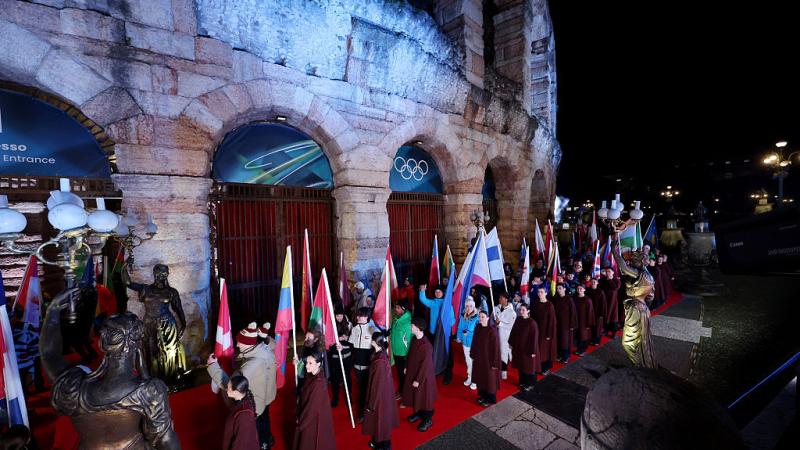House panel enters 'next phase' of probing anti-semitism in colleges, takes aim at leaders, faculty
Congressional Committee Challenge University Presidents over Anti-Semitism at their Schools
The House Committee on Education & the Workforce is now in the "next phase" of its roughly 19-month probe into antisemitism at U.S. colleges – calling university leaders to Capitol Hill on Tuesday to explain how and why their schools and students appear to continue to have such hostility toward Jews.
“Today’s hearing marks the next phase of the committee’s work – an effort to understand why this wave of antisemitism was able so easily to consume the nation’s universities in the first place,” committee Chairman Rep. Tim Walberg said in his opening remarks for the hearing, titled: "Antisemitism in Higher Education: Examining the Role of Faculty, Funding, and Ideology.”
Rich Lyons, chancellor of the University of California Berkeley, told the committee that “antisemitism is pervasive in the world. It’s pervasive in this nation, in society. I think our universities are reflections of our societies, especially a large public university.”
Lyons also said: “Part of what we do see in universities is there is a freedom to express one’s views even if there’s some learning that needs to happen through that process and I think that’s a healthy part of what universities do.”
Committee member Rep. Glenn Grothman challenged that argument and suggested the facility might be at least part of the problem.
“This is basically a university problem, and I think it became a problem because we have such a slanted overall view of the world of the university compared to the country as a whole," the Wisconsin Republican said. “In an ideal world, I think you’d say that the university faculty represents a cross-section of the country, but we all know that’s not true.”
The American Enterprise Institute has reported on a Higher Education Research Institute study that found in 2016-2017, 60% of higher eduction faculty members identified as either far left or liberal, compared to just 12% being conservative or far right.
"The universities are just overwhelmingly democrat, which is a breeding ground for this antisemitism because right now the progressive wing of the Democrat Party … this anti-Israel fueling has become one of the things along with global warming or racism or whatever that becomes the norm," Grothman continued.
All three university leaders testifying at the hearing stated that they were committed to helping their students feel safe on their campuses and all three schools have implemented training programs across campuses to accomplish this.
"Berkeley unequivocally condemns antisemitism," Lyons said, while acknowledging, "We have more work to do.”
Lyons also pointed to new efforts including requiring antisemitism training for incoming students.
Several times throughout today’s hearing, someone in attendance disrupted the hearing with loud shouts.
Walberg noted that “it was not Jewish spokespersons disrupting this hearing today. I think that can be noted all across.”
While the university leaders discussed their disapproval of antisemitism on their campuses, there were some instances in which the committee challenged them on instances of antisemitism at their schools and how those situations were handled.
Walberg highlighted several instances in which he thought each of the three schools whose leaders were testifying Tuesday failed to adequately address antisemitism at their schools.
He argued that Georgetown University interim President Robert M. Groves, one of three leaders who testified, failed to properly recognize antisemitism at the school's Qatar campus.
"At least unwilling to say that their responsibility is to make sure that the activities that go on at the campus, that the awards that are given to people who are antisemitic seem to continue," Walberg said. "I’m concerned about that.”
He said Lyons wouldn't do anything about what he admits are the abhorrent views of a professor and calls him a “fine scholar.”
City University of New York’s Chancellor Félix V. Matos Rodríguez, the other school leader to testify, also came under Walberg’s scrutiny for allegedly not saying that CAIR (Council on American Islamic Relations) was antisemitic.
He said in response to some of the criticism, "Given our Jesuit values, we expose students to different viewpoints on the Middle East. In addition to speakers on Gaza, we’ve hosted IDF soldiers, families of Israelis and Palestinians who’ve lost their lives. US families of US hostages in Gaza. Georgetown is not perfect, and as events evolve, we’ve had to clarify rules of student behavior," according to The Guardian.
The testimony Tuesday, in the committee's ninth such hearing, came roughly 19 months after the leaders of Harvard University, the Massachusetts Institute of Technology and the University of Pennsylvania testified before the same committee about campus antisemitism and the related pro-Palestinian protests and sit-ins that followed the Israel-Hamas conflict that started Oct. 7, 2023.
During the Dec. 5, 2023, hearing, then-Harvard President Claudine Gay was questioned about whether calls for the genocide of Jews would violate the school's Code of Conduct.
Gay's response that it "can be, depending on the context" resulted in widespread criticism and calls for her resignation. She apologized for her remarks, saying "calls for violence against our Jewish community – threats to our Jewish students – have no place at Harvard."
She initially received support from the Harvard Corporation, the university's highest governing body. However, growing dissent about her testimony and plagiarism allegations led to her resignation as president about a month later.















